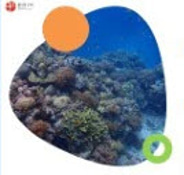The Crucial Role of Coral Reefs in Marine Biodiversity and Coastal Protection
Coral reefs are some of the most diverse and productive ecosystems on the planet. These underwater structures, primarily built from the calcium carbonate of coral polyps, provide habitats for a myriad of marine species. They are often referred to as the "rainforests of the sea" due to their rich biodiversity, which includes thousands of fish species, invertebrates, and other marine organisms. In addition to their ecological significance, coral reefs serve as natural barriers that protect coastlines from erosion and storm surges, thus providing essential support to coastal communities.
5/5/20251 min read


Understanding Coral Reefs
Coral reefs are some of the most diverse and productive ecosystems on the planet. These underwater structures, primarily built from the calcium carbonate of coral polyps, provide habitats for a myriad of marine species. They are often referred to as the "rainforests of the sea" due to their rich biodiversity, which includes thousands of fish species, invertebrates, and other marine organisms. In addition to their ecological significance, coral reefs serve as natural barriers that protect coastlines from erosion and storm surges, thus providing essential support to coastal communities.
Threats to Coral Reefs
Despite their importance, coral reefs face numerous threats that jeopardize their existence. One of the most pressing issues is climate change, which has led to increased ocean temperatures. This temperature rise can cause coral bleaching, a phenomenon where corals expel the algae that live symbiotically within them, leading to the corals' eventual death. Furthermore, pollution from land runoff and plastic waste can degrade water quality, harming the delicate balance of reef ecosystems. Overfishing also poses a significant threat, as the removal of key species can disrupt the entire food web, affecting biodiversity and reef health.
The Need for Effective Monitoring and Conservation
To tackle these challenges and preserve the vital ecosystems represented by coral reefs, effective monitoring and conservation strategies are essential. Regular assessments of coral health and biodiversity can help identify critical areas requiring immediate intervention. Implementing sustainable fishing practices and reducing pollution through proper waste management are vital steps toward protecting these vulnerable ecosystems. Additionally, raising public awareness and promoting community engagement in coral conservation efforts can foster a collective responsibility to protect our oceans.
In conclusion, coral reefs are vital ecosystems that not only support marine biodiversity but also play a significant role in protecting coastlines and sustaining livelihoods. The threats they face from climate change, pollution, and overfishing necessitate a concerted effort to monitor and conserve these fragile ecosystems. By prioritizing their protection, we can ensure that coral reefs continue to thrive for future generations.
